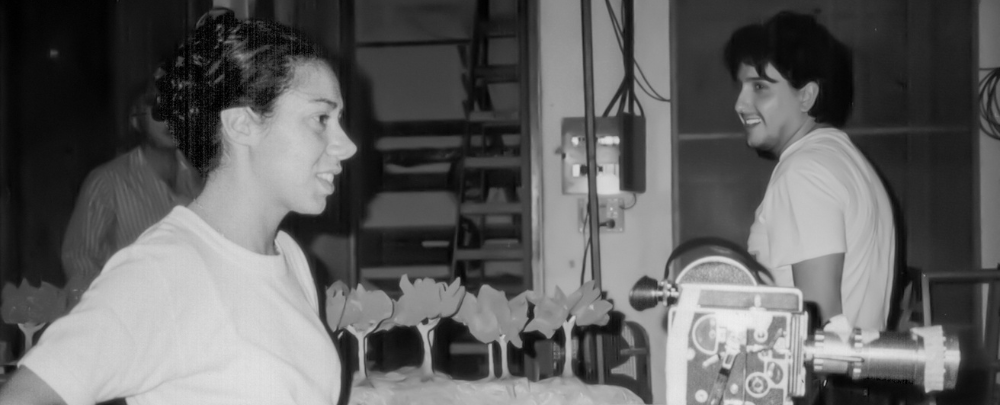Judy Genshaft Honors College Affiliate Professor Tamara Nemirovsky is an award-winning filmmaker, animator, and educator. She teaches various creative arts classes at the Honors College that combine visual storytelling with thematic concepts related to social justice and community engagement.
Last year, Nemirovsky released her latest feature-length documentary, “Second Chances.”
The film has since received national and international recognition, accumulating laurels
like the best documentary and best female director awards at the South Film and Art
Academy Festival in Chile, the Best Documentary Award at The Tampa Bay Underground Film Festival, the award of excellence at The Impact DOCS Awards Documentary Competition in California, and the best health and COVID-19 film award from the Berlin Indie Film Festival in Germany.
The film "Second Chances" follows four individuals in Tampa, all of whom have faced
the daunting challenge of recovering from substance abuse disorder as they struggle
through the COVID-19 pandemic. Through the help and support of The Portico, a Tampa
non-profit organization, these individuals are able to make positive changes in their
lives. The documentary takes an honest look at the struggles they face while also
capturing the beauty of resilience, perseverance, and recovery.
Honors News caught up with Professor Nemirovsky to discuss the documentary and her
production process in depth.
Q: Professor Nemirovsky, could you first tell us about your background?
Well, first, hello! My name is Tamara Nemirovsky. I'm from Cordoba, Argentina. I studied
film there. I did a couple of stop-motion animations that won international and human
rights awards. Then, I was awarded a Fulbright scholarship to pursue my master’s in
computer animation in the United States.
Eventually I got in touch with the Honors College, and I started teaching a documentary
class. I was then able to propose other classes, called Creators: Images and Sounds,
and a stop-motion animation class.

Q: What inspires you to create, and what values guide your filmmaking process?
What drives me to be creative is that I cannot stop doing so. It’s something that
I need to do. But I like it more when I have an impact in the community.
I love what I do. And I'm lucky that I have the opportunity to do something that I
love. I always try to transmit most of all my knowledge, my experience. I see my students
as if they were my kids. I always see them as a person, first. And it's because I
always imagine my kids growing up and going to college ... I hope they’re treated
the way I treat my students.
Q: Your documentary “Second Chances” has screened at several film festivals around the world since its premiere at Gasparilla Film Festival last year — can you tell us more about this project? What moved you personally to tell this story?
My documentary, “Second Chances,” is about four people that have recovered from an addiction. But this nonprofit, called The Portico, when they go through this program, they graduate and they're able to look for a job in another cafe to leave room for the next group of participants.
After all the research that I did about addiction, I realized that it is important to have a next step. If the participants don't have a follow up, a next step, they may go back to substance-use.
Q: What did the experience of making Second Chances teach you about filmmaking and storytelling?
Usually I work with a crew, somebody else on post-production, the color correction and sound. But I had no budget. This project was done out of love, because I believed in The Portico Cafe’s cause. So long story short, I had to do everything in the production process, and I had to learn everything myself. It was almost a one-person project. This was pretty challenging.
I had everything planned, I start filming in February 2020, and their lives, the participants'
lives, were going great. But, after I finished filming the interviews, COVID got to
Tampa.
We all were under a lot of stress during COVID, and every time that I wanted to quit,
I said to myself: no, you cannot do that... commit to being part of something bigger
than yourself.
Q: What was your experience like at the Gasparilla Film Festival specifically?
The nice part was that the movie theater was full. And it was very emotional, at least for me, to see how the audience reacts, and to realize that the documentary was able to transmit the message.
Q: What advice would you give an Honors student interested in learning more about filmmaking, documentary or digital storytelling?
If you want to learn more about filmmaking, documentaries, storytelling, or animation,
take my classes!
I also think the most important part of learning is collaboration and feedback. That
way, we construct something together that is going to impact the community.